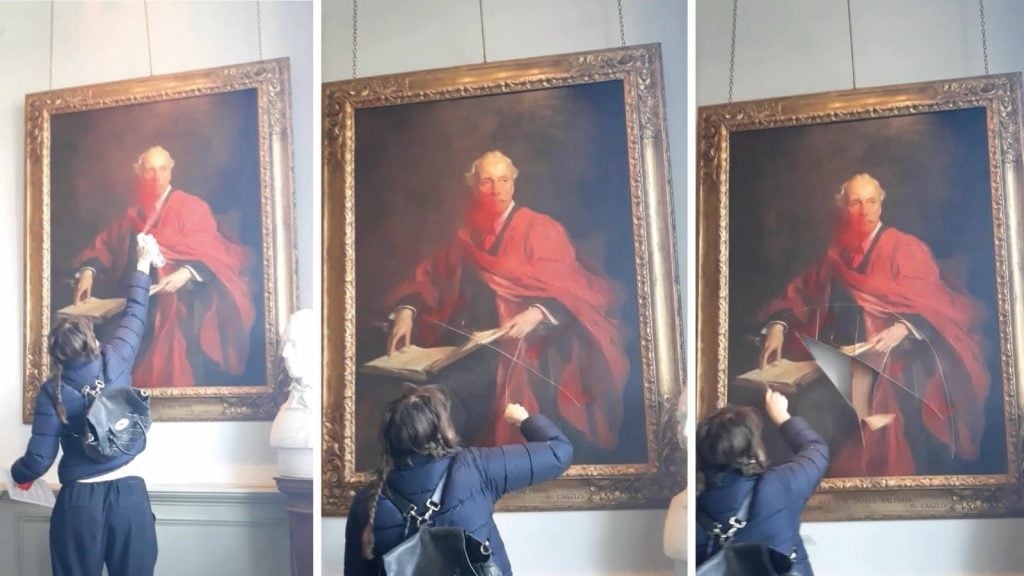Law & Politics
Historic Portrait of Lord Balfour Slashed by Pro-Palestine Protestors
The Palestine Action group targeted the painting for its sitter's controversial backing of Zionism.

The Palestine Action group targeted the painting for its sitter's controversial backing of Zionism.

Adam Schrader

A painting of Lord Balfour housed at the University of Cambridge’s Trinity College was slashed by protest group Palestine Action.
Lord Arthur James Balfour was a significant figure in the establishment of the state of Israel because of his role as the British Foreign Secretary. In 1917, Balfour wrote a letter to Lord Lionel Walter Rothschild, a leader of Zionist movement in Britain, expressing the British government’s support for the establishment of a “national home for the Jewish people” in Palestine, the common name for the region as part of the Ottoman Empire.
The Balfour Declaration is considered a pivotal moment in the history of the decades-long conflict between Palestinians and Israelis because it marked the first time a major global power recognized the aim of establishing a Jewish homeland in Palestine, which bolstered international support for Zionism and set the stage for the establishment of Israel in 1948.
BREAKING: Palestine Action spray and slash a historic painting of Lord Balfour in Trinity College, University of Cambridge.
Written in 1917, Balfour’s declaration began the ethnic cleansing of Palestine by promising the land away — which the British never had the right to do. pic.twitter.com/CGmh8GadQG
— Palestine Action (@Pal_action) March 8, 2024
The painting of Lord Balfour was made in 1914 by Philip Alexius de László inside Trinity College. The Palestine Action group specifically targeted the Lord Balfour painting, describing his declaration as the beginning of “ethnic cleansing of Palestine by promising the land away—which the British never had the right to do.”
“After the declaration, until 1948, the British burnt down indigenous villages to prepare the way; with this came arbitrary killings, arrests, torture, sexual violence including rape against women and men, the use of human shields, and the introduction of home demolitions as collective punishment to repress Palestinian resistance,” the group said.
This violence by the British and Jewish people in Palestine at the establishment of the Israeli state has been named the Nakba. More than 750,000 people were forced into exile at the time.
The Cambridgeshire Constabulary, the local police force, said in a statement that it received an online report of criminal damage to a painting at the university.
“Officers are attending the scene to secure evidence and progress the investigation,” police said. “No arrests have been made at this stage.”